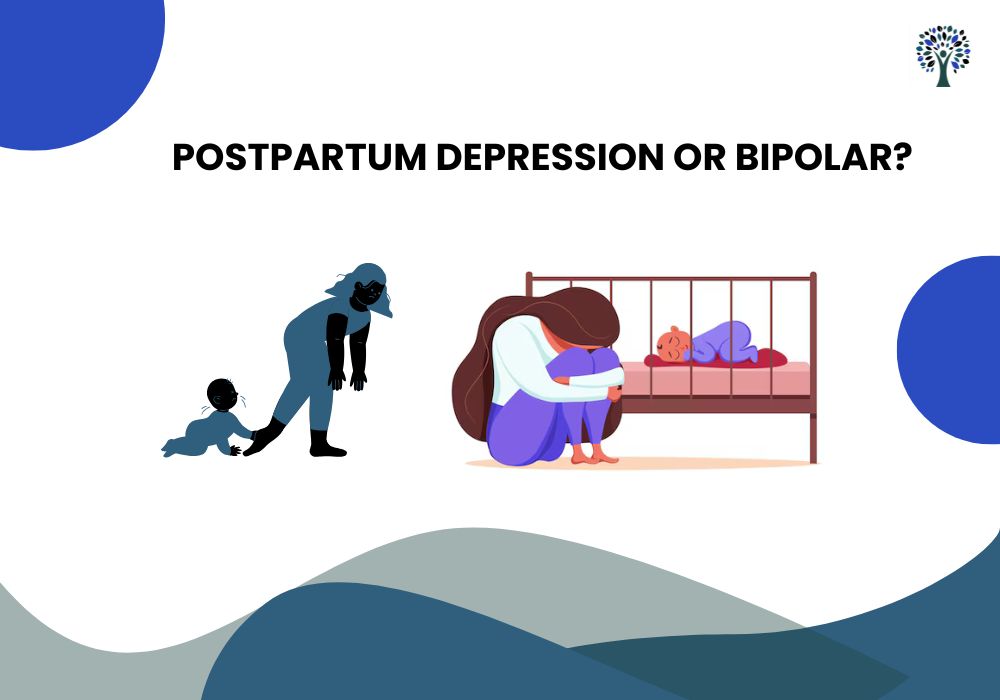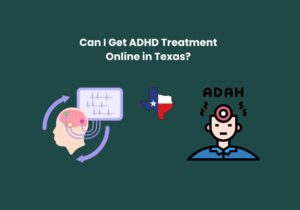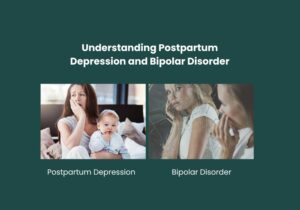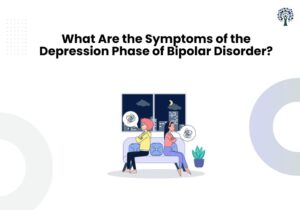Postpartum depression (PPD) and bipolar disorder are two significant mental health conditions that can affect new mothers. While they share some common symptoms, such as mood swings and emotional instability, they are distinct disorders that require different treatment approaches. Understanding the overlap between postpartum depression and bipolar disorder is crucial for effective diagnosis and treatment. In this article, we will explore the key differences, and similarities, and what you should do if you’re experiencing symptoms of either condition.
What is Postpartum Depression?
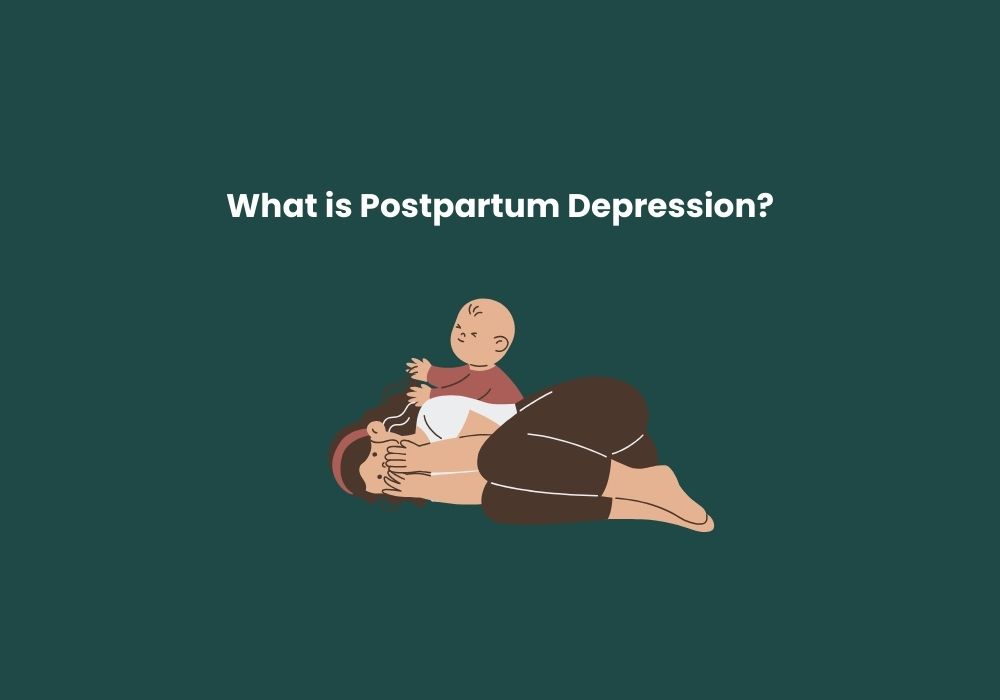
Postpartum depression is a type of depression that affects women after childbirth. It is more than just the “baby blues,” which are common mood swings that many women experience in the first few days after delivery. While the baby blues typically resolve on their own, It is more intense and can last for weeks or even months if untreated.
Symptoms of Postpartum Depression include:
- Persistent sadness or low mood
- Loss of interest or pleasure in activities
- Difficulty bonding with the baby
- Fatigue and lack of energy
- Feelings of guilt or worthlessness
- Changes in sleep and appetite
- Thoughts of harming oneself or the baby
The causes of postpartum depression are complex, involving hormonal changes, emotional stress, and the challenges of adjusting to motherhood. Genetic and environmental factors may also play a role.
What is Bipolar Disorder?
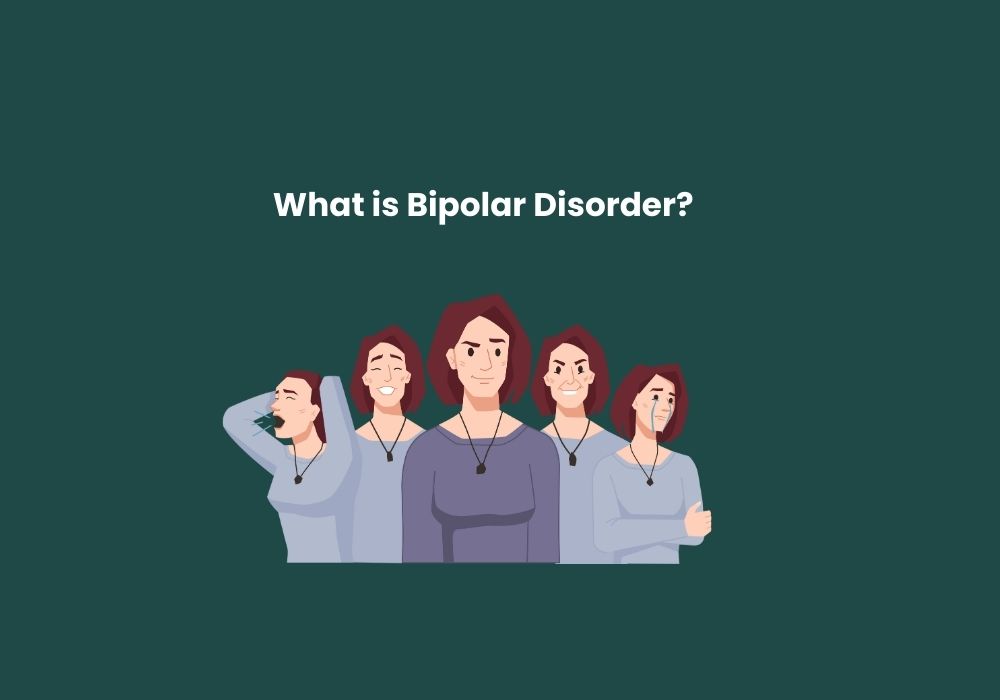
Bipolar disorder, on the other hand, is a mental health condition characterized by extreme mood swings that include emotional highs (mania or hypomania) and lows (depression). These mood swings can severely impact a person’s ability to function daily, affecting relationships, work, and general well-being.
Symptoms of Bipolar Disorder include:
- Periods of extreme high mood (mania) or irritability
- Increased energy, restlessness, and racing thoughts
- Risk-taking behaviors
- Reduced need for sleep
- Periods of deep sadness, hopelessness, or irritability (depressive episodes)
- Difficulty concentrating or making decisions
There are different types of bipolar disorder, with Bipolar I involving manic episodes and Bipolar II involving hypomania (a less severe form of mania). Both types of bipolar disorder involve depressive episodes that resemble symptoms of depression, including the feeling of being overwhelmed, sadness, or a loss of interest in daily activities.
The Overlap Between Postpartum Depression and Bipolar Disorder
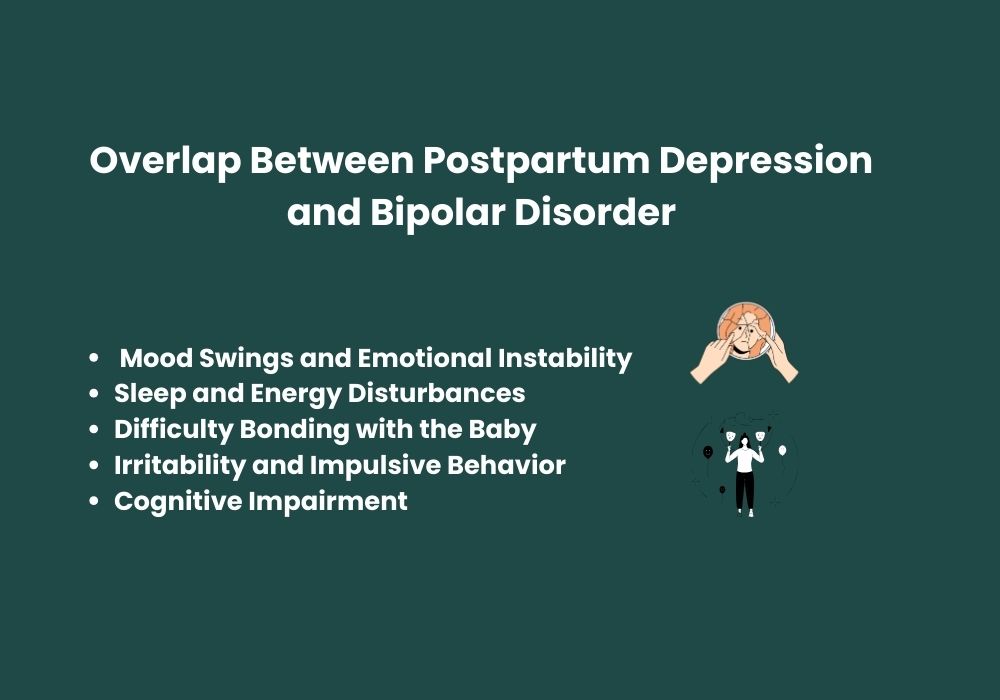
While postpartum depression and bipolar disorder are different conditions, they share some overlapping symptoms, making it challenging to distinguish between the two without professional assessment.
1. Mood Swings and Emotional Instability
Both conditions involve mood swings, but the nature of the swings differs. In postpartum depression, the mood is typically low, with a sense of sadness, hopelessness, and emotional numbness. In contrast, bipolar disorder involves both manic (or hypomanic) highs and depressive lows. These mood swings in bipolar disorder can be much more extreme and can last for days or weeks, rather than just a few hours.
2. Sleep and Energy Disturbances
Both postpartum depression and bipolar disorder can cause changes in sleep patterns. In postpartum depression, women may experience difficulty sleeping due to feelings of anxiety or the physical demands of caring for a newborn. However, bipolar disorder can cause both insomnia during manic episodes and excessive sleeping during depressive episodes.
3. Difficulty Bonding with the Baby
One of the hallmark symptoms of postpartum depression is difficulty bonding with the newborn. Mothers may feel disconnected from their babies, a symptom that is often linked to the feelings of sadness and inadequacy that accompany depression. While bipolar disorder doesn’t specifically cause bonding difficulties, the depressive episodes in bipolar disorder can lead to similar feelings of detachment and emotional distance from the baby.
4. Irritability and Impulsive Behavior
While postpartum depression is often characterized by sadness, guilt, and lethargy, some women experience irritability and anger. This symptom can overlap with the mood swings found in bipolar disorder, particularly during a manic episode when a person may feel restless and prone to irritability.
5. Cognitive Impairment
Both postpartum depression and bipolar disorder can result in cognitive symptoms such as difficulty concentrating, decision-making, and memory issues. For women with postpartum depression, this may be related to fatigue, stress, and anxiety surrounding motherhood. For those with bipolar disorder, cognitive impairment often occurs during depressive episodes and can significantly impact day-to-day functioning.
Why is Diagnosis Important?
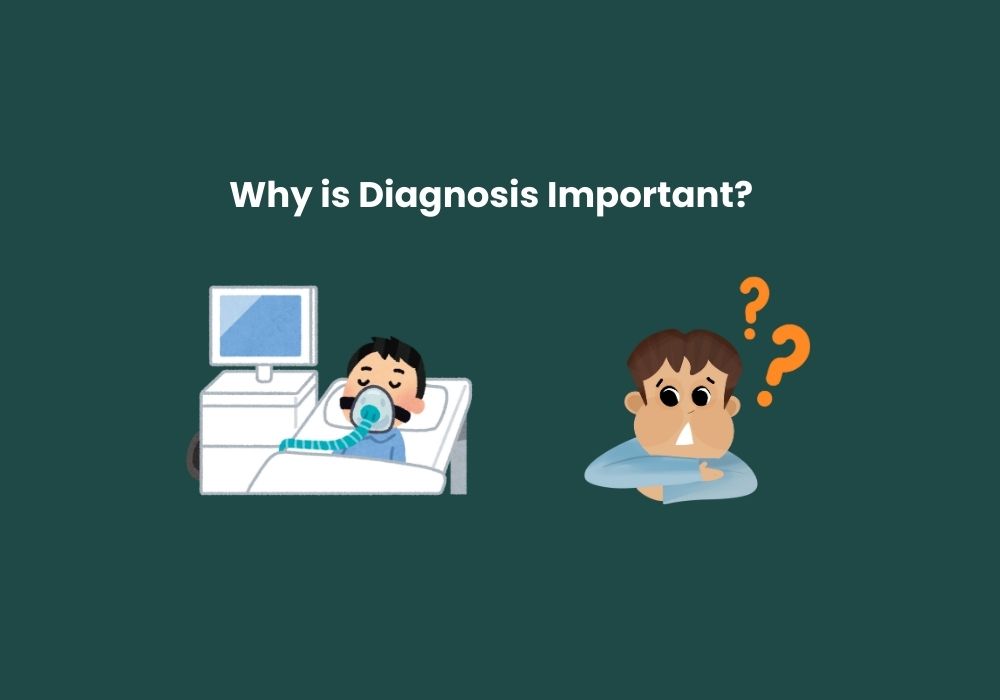
Distinguishing between postpartum depression and bipolar disorder is critical for effective treatment. The treatment for these two conditions differs significantly.
- Postpartum Depression Treatment: Treatment for postpartum depression typically involves psychotherapy, support groups, and medications like antidepressants. In some cases, hormone therapy may also be considered, especially if hormonal imbalances are contributing to the depression.
- Bipolar Disorder Treatment: The treatment of bipolar disorder requires a different approach, as mood stabilization is essential. Medications like mood stabilizers, antipsychotics, and sometimes antidepressants are commonly prescribed. Therapy, including cognitive-behavioral therapy (CBT), is often recommended alongside medication.
For women who experience postpartum depression that mimics bipolar disorder, it’s important to have a healthcare professional evaluate the symptoms. A misdiagnosis could lead to the wrong treatment, which may not be effective or could worsen the condition.
How to Get Help
If you are a new mother experiencing any of the symptoms mentioned above, you must seek help. Seeking support from a mental health professional, such as a psychiatrist, therapist, or counselor, can help you understand what you’re going through and begin the appropriate treatment.
At Peniel Psychiatry, we specialize in diagnosing and treating various mood disorders, including postpartum depression and bipolar disorder. Our compassionate team is here to guide you through understanding your symptoms and developing a personalized treatment plan.
Contact us today for a consultation to discuss your mental health concerns. Whether you’re experiencing postpartum depression or suspect that you may have bipolar disorder, we’re here to help you navigate this challenging time and provide the support you need for a healthier, happier life.
Conclusion
Postpartum depression and bipolar disorder may seem similar at first glance due to overlapping symptoms such as mood swings, irritability, and sleep disturbances. However, these are two distinct disorders with different causes, symptoms, and treatment options. Accurate diagnosis and early intervention are crucial for managing both conditions effectively. If you’re struggling with mood swings or feelings of sadness after childbirth, don’t hesitate to seek help from a mental health professional who can provide the support and treatment you deserve.

